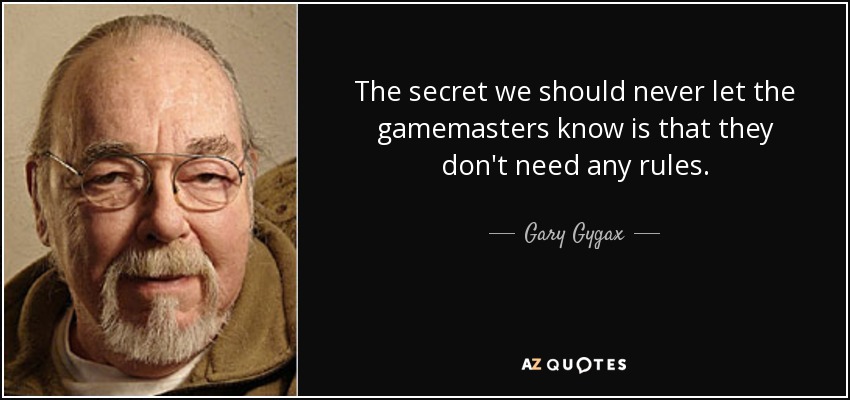Dungeon Master Dispatch
Mastering the Rules: The Dungeon Master's Balancing Act

In the realm of Dungeons & Dragons, the Dungeon Master plays a pivotal role, not just as a storyteller, or more accurately, a store facilitator, but as the arbiter of the game's rules. Understanding the mechanics is crucial, but so is knowing when to adhere strictly to the rulebook and when to let the narrative lead. This delicate balance between fidelity to the rules and the freedom of storytelling is what makes a DM truly masterful. Today we explore the art of balancing the rules to enhance the gaming experience for everyone at the table.
The Importance of Knowing the Rules
At its core, D&D is a game of imagination, but it's structured by a set of rules that ensure fairness and continuity. These rules govern everything from character creation to combat, from spellcasting to skill checks. A DM's grasp of these rules is essential for several reasons.
First, consistency in rule application is the bedrock of a fair game. Many players come to the table with an understanding of the game's mechanics, and they base their strategies and decisions on this understanding. Other players will come with little or no actual understanding of the rules. In either case, when rules are applied inconsistently, it can lead to confusion and frustration, detracting from the game's enjoyment. A DM who knows the rules well, can apply them consistently, ensuring that all players are on an equal footing and that the game progresses smoothly.
Second, a DM's confidence in their knowledge of the rules instills confidence in the players. It assures them that the DM is capable of guiding the game effectively, making rulings that are fair and informed. This confidence allows players to immerse themselves more fully in the game, trusting in the DM to maintain the integrity of the gameplay.
Finally, a thorough understanding of the rules actually fosters creativity. When DMs know the mechanics inside and out, they can make informed decisions about when and how to bend or modify the rules to serve the story or enhance the fun. This deep knowledge allows for flexibility in storytelling and game management, enabling DMs to create a more engaging and dynamic game.
The Art of Flexibility
While a solid grasp of the rules is indispensable, rigidity can stifle the creative spirit of D&D. The magic of the game lies in its boundless possibilities, and sometimes the most memorable moments arise from straying off the beaten path.
The "Rule of Cool" is a principle that many DMs embrace. It posits that if an action or idea is particularly cool or dramatically appropriate, the DM might allow it, even if it doesn't strictly adhere to the rules. This approach prioritizes the fun and excitement of the game over strict rule adherence. It encourages players to think creatively and take bold actions, knowing that their DM values the story and the cinematic moments over the minutiae of the rules.

Player agency is another critical aspect of D&D, and maintaining flexibility as a DM supports this. Allowing players to explore their characters' capabilities and come up with innovative solutions to challenges enriches the game for everyone. It can lead to unexpected and thrilling developments in the story, driven by the players' choices and creativity. A flexible DM can adapt to these situations, weaving the players' actions into the narrative in a way that respects their autonomy while still maintaining the coherence of the game world.
Also, there are times when the narrative demands deviation from the rules. A story might reach a climax that requires a bending of the usual mechanics to achieve the desired dramatic effect. In these moments, a DM's willingness to prioritize storytelling over strict rule adherence can lead to powerful and memorable moments in the campaign. These are the instances that players will talk about long after the session has ended, where the story took a turn that was both unexpected and incredibly satisfying.
Finding the Balance
Striking the right balance between adherence to the rules and creative flexibility is a skill that DMs develop over time. Here are a few strategies to help find that equilibrium.
Knowing the rules thoroughly is the first step, but being unafraid to improvise is equally important. The rules provide a framework, but the DM's role is to create an engaging story within that framework. Sometimes, this means adapting the rules to fit the narrative or the players' creative solutions to problems. Sometimes it means forgetting the rules entirely, and going with what feels right. Either way, it should always aim to enhance the fun and engagement of the game, never diminish it.
Communication with players is vital in achieving a balance between rules and flexibility. Before the campaign begins, discuss with your players how strictly they want the rules enforced and how much leeway they're comfortable with for the sake of storytelling. This conversation can help set expectations and ensure that everyone is on the same page regarding the game's tone and style.
Finally, reflection after each session can be incredibly valuable. Consider moments when sticking to the rules added to the game and when bending them enhanced the experience. Use these reflections to guide your approach in future sessions, learning from what worked well and what could be improved.
You are going to think about the game between sessions, that’s inevitable. More than likely, you are going to be too harsh on yourself for either following the rules too strictly, or allowing the players to do what they wanted. It’s normal. This ongoing process of adjustment and learning is what makes a DM truly masterful.
Analysis Paralysis
At this point, you may be thinking that you need to know every rule by memory before you even attempt to run a game. That’s not true. If you’re DMing, you’ve played. If you’ve played, you know what you liked and what you didn’t. You also have a good grasp of how the game is run, having played before.
Read the Dungeon Master’s Guide all the way through, cover to cover. That will give you everything you need, to run a game. You won’t remember everything, but you don’t need to. If you happen to have a Rules Lawyer at your table, disputing every call you make, tell them you’ll discuss it after the session, then make sure that you do.
After the session, pull out the books, and verify who is right. If you are correct, they should acknowledge it. If, on the other hand, you were wrong, you need to give them credit, and remember what to do for future sessions. By taking care of the disputed rule after the session, you allow the game to continue, and you also let the Rules Lawyer have their say, just not in the middle of the game.
These people can be extremely helpful to you. They will guarantee that you learn the rules as fast as you can. Just don’t let them boss you around. You are the DM. You can tell them straight out that they are welcome to run their own game if they like. I have yet to see a Rules Lawyer actually run a game. They like to be a know it all, but they don’t want the responsibility of running the game.
The Master of The Dungeon
The hallmark of a Masterful DM is not just a deep knowledge of the rules but the wisdom to know when to set them aside. Balancing the mechanics with the narrative and ensuring fairness while fostering creativity, is the essence of the art. By mastering the rules and learning when to let the story lead, you create a game that is not only fun and fair but also memorable and magical. Remember, the ultimate goal is to ensure that everyone at the table is having a great time, including you, the DM.
The best way to master the rules, is to start running a game. Your friends will most likely know you’re new, and will tend to give you slack if you don’t know something particular. Don’t be afraid of making mistakes. Everyone does. Even those of us who have been DMing for decades, can make mistakes. Don’t let that stop you from starting your journey.
Dungeon Master Dispatch